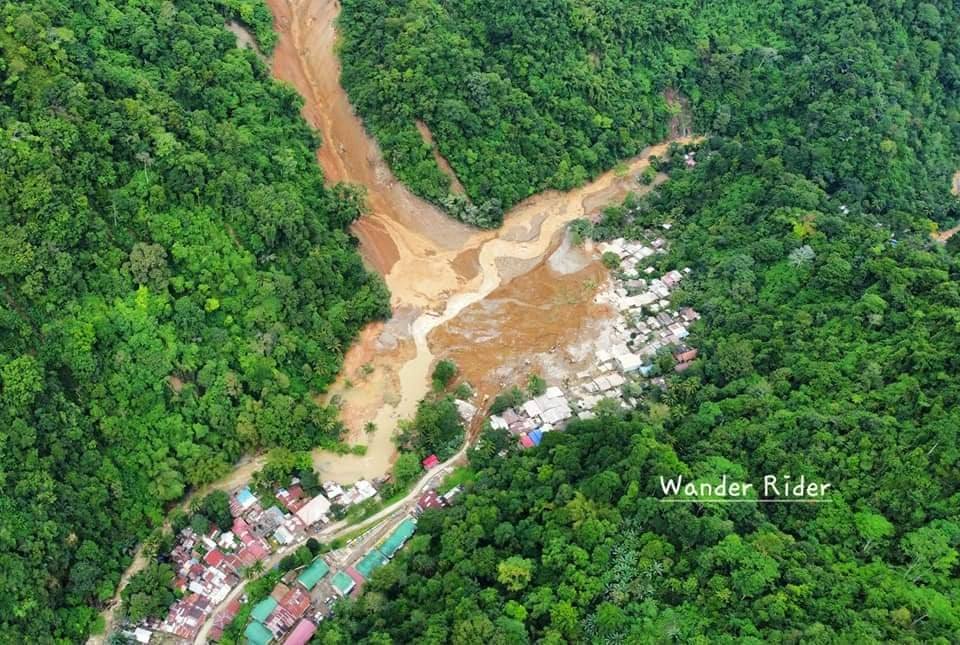Davao landslide, Apex Mining role must be probed — Labor NGO

The Center for Trade Union and Human Rights (CTUHR) an NGO working for the labor and human rights of workers in the country’s formal and informal sectors, condoles with the family and friends of the twenty seven (27) victims who were confirmed dead because of the February 6 landslide that followed heavy rains in Masara village, Maco town of Davao de Oro province.
We call on authorities to work overtime to find the 89 people who remain missing. We express our solidarity with the 31 persons who were injured because of the tragedy, as well as their families and friends. We call on the government to ensure that residents in other villages in Maco are evacuated promptly and provided decent evacuation sites.
We support all efforts to give a decent wake and burial to the dead, to find those who remain missing, to immediately heal the injured, and to immediately evacuate and shelter those who are still in danger.
We are calling on the Ferdinand Marcos Jr government, especially Secretary Bienvenido Laguesma of the Department of Labor and Employment and Secretary Toni Yulo-Gonzaga of the Department of Environment and Natural Resources, to immediately investigate the landslide.
The landslide has affected hundreds of workers and residents and deserves the national government’s attention. Its causes should be identified immediately, as these will most likely continue to pose dangers to thousands of workers and residents in the area. Gone are the days when Southern Mindanao is spared by the typhoons and heavy rainfall that affect other parts of the country.
In particular, the criminal accountability of mining company Apex Mining Co. Inc., should be probed. The company’s denial — its statement that “The place where the slide happened is outside the mine operations area of Apex Mining” — should be examined critically.
A simple perusal of Google Maps would show that the landslide’s location is at most a 40-minute walk from its mining site. Depending on the duration and intensity of mining operations, as well as other factors, mining’s effects can reach places that are distant from actual operations.
Apex Mining’s exercise of its due diligence, as well as the government’s environmental impact assessment of Apex Mining’s operations, should be investigated closely. Were there reasons to believe that this was a tragedy that was waiting to happen? Those responsible for this tragedy should be held to account.
We have every reason to believe that Apex Mining has been negligent of the effects of its mining operations on the environment and have in fact been destructive of the environment. Environmental activists have been protesting the company’s large-scale and open-pit mining operations. They have been calling attention precisely to the dangers posed by the company’s operations to Maco’s communities. One of these environmental activists were Marcelo Monterona, who was extra-judicially killed on January 3, 2014 in Compostela Valley.
We trust that investigating the landslide and Apex Mining’s accountability for the landslide will yield important insights about the country’s mining policy. Why is a mining company allowed to flatten a mountain in searching for precious minerals? Why is the welfare and rights of poor communities around the mining site being set aside in favor of Apex Mining’s greed for profits?
Our sources tell us that Apex Mining imposes long working hours on its workers, refuses to comply with workplace safety and health standards, and commits other labor rights violations. These, too, should be investigated.
According to a 2014 appeal created by the Asian Human Rights Commission, “Apex Mining Co. is largely owned by Mapula Creek Gold Corp, a subsidiary of Crew Gold Corporation based in the United Kingdom; and Mindanao Gold Ltd., a special purpose company formed by Malaysian investment company ASVI.”###
